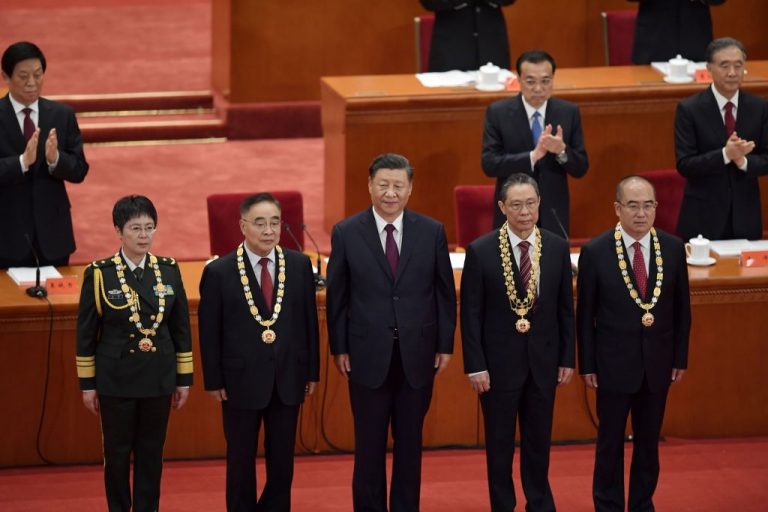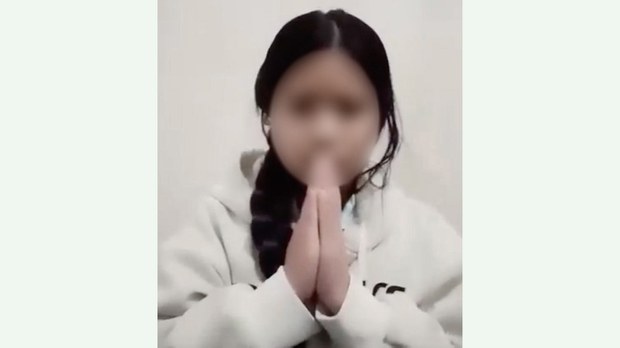A Chinese researcher who was suddenly removed from Canada’s Biosecurity Level 4 laboratory by federal police in May of 2019 and was later found to have shipped 30 vials of different viruses to the scandal-plagued Wuhan Institute of Virology (WIV) has co-authored Ebola research papers with a top scientist from the Chinese Communist Party’s (CCP) People’s Liberation Army (PLA) who published under a civilian pseudonym.
The revelation comes in a Sept. 16 article by Canada’s left-leaning Globe and Mail that Qiu Xiangguo of the Winnipeg National Microbiology Laboratory (NML) worked on two Ebola research papers with the PLA’s Maj. Gen. Chen Wei.
The outlet says in the papers, Maj. Gen. Chen published under the name Wei Chen and identified herself as having a PHD from the Beijing Institute of Technology, which is part of the Academy of Military Science.
The Globe says it has “confirmed that Wei Chen and Maj.-Gen. Chen are the same person.”
Three anonymous NML sources who worked on the two projects were paraphrased as telling The Globe, “They had no idea that Wei Chen was a major-general and China’s top virologist. They said Dr. Qiu did not share information with them about her collaborations with Chinese scientists.”
Success
You are now signed up for our newsletter
Success
Check your email to complete sign up
NML staff are under a gag order imposed by the Public Health Agency of Canada (PHAC) after Qiu’s scandal.
In February of 2020, shortly after the pandemic became the forefront of the world’s mind, Beijing deployed Chen to Wuhan to take the reins and handle the crisis at the WIV.
According to Nature, Chen was the first in the world to develop an approved COVID-19 vaccine, an adenovirus vector variant licensed by CanSino Biologics. In a propaganda stunt, Chen and her team injected themselves with their new vaccine before animal trials had been conducted.
In May of 2020, PHAC actually approved the CanSino injection for human trials on Canadian citizens, but just days before shipment of product from China to Canada was to take place in August, China’s customs department blocked shipment because Beijing would not certify the transaction amid the conflict surrounding the detainment of Huawei’s CFO Meng Wanzhou on house arrest pending court proceedings for a U.S. extradition warrant.
Qiu was removed from the NML by the Royal Canadian Mounted Police (RCMP), along with her husband, Cheng Keding, a fellow researcher. The news emerged suddenly and made only a small splash in Canadian and international media
Both the RCMP and PHAC stayed mum until August of 2019 when PHAC finally admitted Qiu and Cheng had shipped samples of Ebola and Henipavirus to the WIV. Despite the pair’s removal by law enforcement, the NML said the transfer was part of a “routine” sharing between the labs.
In June of 2020 the Canadian Broadcasting Corporation used Access to Information filings to uncover that Qiu had shipped two vials of 15 different viruses to the WIV, including three kinds of Ebola, two kinds of Nipah, and Hendra virus.
In a statement to The Globe on Chen Wei’s work with Qiu, PHAC was unapologetic, “While the NML does not have institutional agreements with the Chinese military, Canada’s scientists have collaborated with Chinese scientists to contribute to the global public health fight against deadly diseases, such as Ebola.”
“These collaborations have yielded vaccine and treatment candidates for diseases, as documented in peer-reviewed journals.”
PHAC also declined to confirm or deny whether the PLA officer had personally visited the NML to conduct research.
However, the CBC in its investigation found that Qiu had co-authored 32 papers since her removal from the NML, including eight with Yan Feihu, a researcher from the Chinese Academy of Sciences, a backbone of the CCP’s Military Civil Fusion project.
Referencing anonymous sources inside the NML, the CBC said of Yan that staff at the Winnipeg lab “saw the Chinese military scientist at the NML” and that Qiu had often bragged to colleagues about owning a mansion in mainland China.
Qiu has also not been seen in Canada since her 2019 removal. The couple’s two Winnipeg houses, worth a combined $1.7 million, appeared to be unoccupied for several months according to neighbours interviewed by CBC.
Former Director of the Canadian Security Intelligence Service, Ward Elcock, told The Globe, “If I was the director of CSIS at the time and I had that information in front of me – would it have rung an alarm bell for me? Absolutely.”
CSIS declined to offer The Globe comment on the story.
In July, U.S. researchers published a paper where they examined sequencing data uploaded by the WIV from five early COVID-19 patients in Wuhan, finding the samples contained “an undisclosed H7N9 influenza vaccine, which in one specimen is over six-times as abundant as SARS-CoV-2.”
They also found, “Nipah virus gene sequences…in infectious cloning vectors of the type used for genetic manipulation,” along with 19 other contaminants.
In early September, the Indian state of Kerala, a place with heavy Communist Party influence, suffered yet another outbreak of Nipah virus, killing a 12-year-old boy.
It’s not the first instance of the Canadian government having a serious conflict of national security interests with the CCP. In December of 2020, Rebel News was given fulfillment of an Access to Information Request asking whether the Canadian Armed Forces (CAF) had visited China for the PLA Navy’s 70th Anniversary.
The results provided were so poorly redacted that almost nothing was actually omitted. The documents admitted that Canada had 15 engagements between the CAF and the PLA in 2019 alone, including an instance where ranking PLA generals were invited to Canada for winter survival training.
















